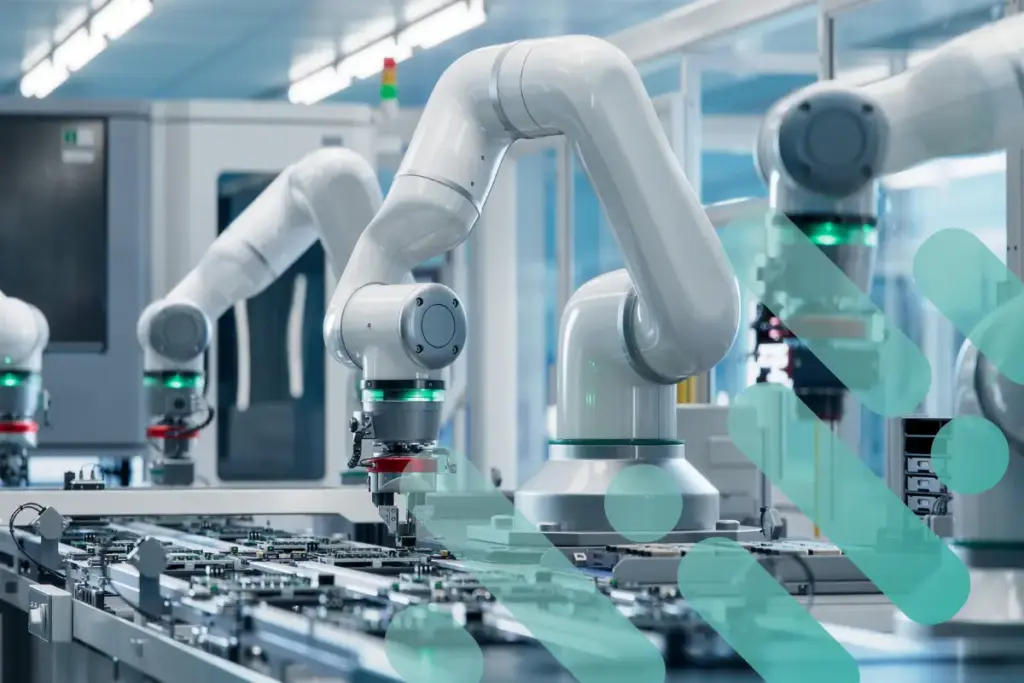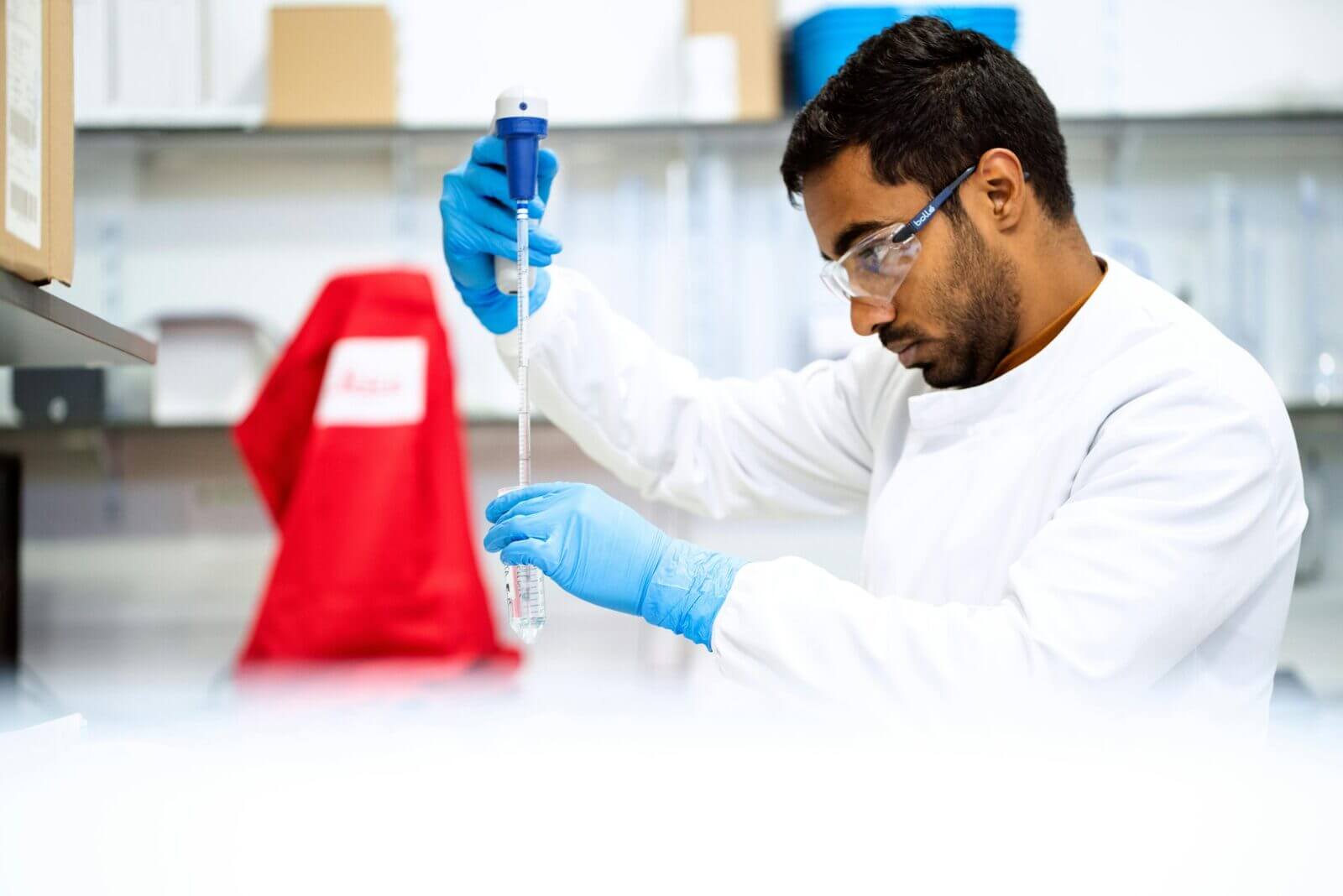
How Automation and AI Are Impacting Engineering Careers

In today’s rapidly evolving technological landscape, artificial intelligence (AI) and automation are fundamentally transforming engineering and opening up new opportunities.
These technologies are altering what engineers do, what skills they need, and what is possible for engineers as professionals, from design optimization to predictive maintenance. This transformation is both an opportunity and a challenge for engineering professionals to adjust to the evolving landscape, but the possibilities are truly exciting.
The Changing Engineering Landscape
The integration of automation and AI into engineering processes is happening at an unprecedented pace. The World Economic Forum predicts that by 2030, these technologies will have replaced 85 million jobs globally while creating 97 million new ones, resulting in a net gain of 12 million jobs across industries. This rapid transformation underscores the urgent need for engineering professionals to adapt to the evolving landscape.
For engineers, this shift is reflected in the fact that intelligent systems are increasingly performing routine, repetitive work, freeing up human engineers to focus on more complex, creative, and strategic work. AI isn’t just changing what engineers do—it’s changing how they work with others.
Real-World Applications Transforming Engineering
The impact of AI on engineering is visible across multiple disciplines and applications:
1. AI-Enhanced Design and Simulation
Modern design systems employ AI to generate and prototype designs based on provided constraints. These methods can create options that may never occur to human engineers while also optimizing for parameters such as weight, strength, cost, and sustainability.
Digital twins, which refer to virtual replicas of physical systems, allow for the simulation of operation in varying conditions. This reduces reliance on physical prototypes and accelerates development time. Engineers can use digital twins to predict and analyze issues before they occur in real operational scenarios.
2. Predictive Maintenance and Diagnostics
Artificial intelligence platforms are transforming maintenance as engineers do. By analyzing machine data, AI can identify patterns that fail before they happen. AI-powered predictive maintenance, as estimated by Deloitte, can raise equipment uptime by up to 20% and lower maintenance costs by 10-25%.
The shift to predictive maintenance is revolutionizing planning and work execution by engineers from ad-hoc repair to preventive actions taken in advance of any activity.
3. Data-Driven Decision Making
Today’s engineers have never had as much data or as many AI tools to interpret it as they do now. This makes data-informed decisions possible at all phases of project life, from planning to daily operation. AI programs can handle thousands of variables simultaneously, identifying patterns and insights that no human could conceivably recognize by hand.
4. Collaborative Robotics
The introduction of collaborative robots, or cobots, brings new dynamics to the engineering work environment. Cobots differ in that they are built to work alongside humans, taking over repetitive or physically stressful procedures. At the same time, engineers are free to concentrate on more intricate manufacturing and quality control elements.
Emerging Roles and Changing Skill Requirements
With automation revolutionizing engineering, there also emerge specialist roles at the intersection of traditional fields of engineering and AI:
- AI Engineers who create and implement machine learning solutions to address engineering issues
- Robotics Integration Experts who design and integrate robot systems to be used in manufacturing and other fields
- Digital Twin Analysts create and maintain virtual replicas of real systems
- Predictive Maintenance Engineers are responsible for designing and managing AI-powered maintenance systems
- Intelligent Systems Designers who create AI-enhanced products and infrastructure
Today, engineers with AI expertise are in high demand across industries. Those who can effectively blend traditional engineering knowledge with AI capabilities will be the most sought-after. This demand underscores the importance of acquiring AI skills to stay competitive in the job market.
Essential Skills for Engineers in the AI Era
To succeed in today’s world, engineers need to develop an appropriate combination of technical and soft skills:
Technical Skills
- Skills in programming and data analysis
- Understanding of machine learning principles and applications
- Experience working with AI tools and platforms related to one’s field
- Systems integration skills
- Cybersecurity awareness
Human Skills
- Critical thinking and problem-solving
- Ethical reasoning and responsible innovation
- Cross-disciplinary communication
- Adaptability and continuous learning
- Creative thinking and design sensibility
According to the World Economic Forum report, 39% of workers’ critical skills will be transformed by 2030. Technology-related skills will become more prominent quicker than any other skills within the next five years.
Ethical Considerations for Engineers
Ethical issues become more relevant as AI is increasingly used in engineering activities. Engineers today need to consider:
- The potential for job loss due to automation
- Data security and privacy in AI systems
- AI decisions need responsibility and accountability
- Ensuring transparency in how AI systems make recommendations
- Designing systems that support and augment, not replace, human abilities
A 2024 systematic review determined that these matters are ethical concerns, particularly in the fields of architecture, engineering, and construction. Engineers who address these ethical dimensions can potentially become more likely to create trustworthy and responsible AI systems.
The Future Outlook for Engineering Careers
Despite automation taking jobs, an engineering career remains a strong prospect, particularly for individuals adapting to work in this new landscape. Integrating AI into engineering is facilitating the movement towards higher-quality work based on the strengths of human ingenuity and machine power.
The next generation of engineers won’t simply utilize AI—they’ll be leading the way in its application. Engineers will be at the forefront of determining where AI delivers value, and where it is made to be safe, fair, and sustainable. This is not a future where machines replace engineers, but one where they are integral to the development and application of AI in their field.
Growth areas for engineers include:
- AI-assisted infrastructure development
- Intelligent manufacturing and smart materials
- AI-enabled healthcare engineering
- Climate engineering and resource optimization
- Design and control of autonomous systems
Engineering Education in the AI Era
Engineering programs are being redesigned to prepare students to succeed in this evolving world by incorporating AI, machine learning, and data science into fundamental curricula of study in every discipline of engineering:
- Cross-disciplinary learning and collaboration
- Hands-on experience working with AI tools in industry
- Ethical frameworks for responsible innovation
- Human-AI collaboration principles
Students are increasingly supported by AI-powered learning assistants, simulation software, and collaboration tools that mimic those used in the workplace.
Embracing the AI-Enhanced Engineering Future
The introduction of AI and automation into engineering is not the replacement of engineers, but the evolution of the profession itself. As IBM ex-CEO Ginni Rometty noted, “Some call this artificial intelligence, but what is real is that this technology will augment us. Instead of artificial intelligence, I believe we will augment our intelligence.”
Your Engineering Career in the AI Age
In this evolving climate, success for today’s engineers is embracing AI as an unrivaled opportunity rather than something to be feared. With technical AI abilities and quintessential human creativity skills, ethical judgment, and systems thinking, today’s engineers can position themselves at the forefront of innovation.
The future is reserved for engineers who can leverage AI’s potential and integrate it with human judgment, creativity, and ethical reasoning to address the intricate issues of our world.
Ready to Transform Your Engineering Team?
At Hunter Recruiting, we stay up to date on the evolving needs of engineering teams in an AI-driven era. Our seasoned engineering recruiters help companies find engineers with the perfect combination of traditional and AI knowledge.
Are you seeking an AI integration team or engineers capable of bridging technical and strategic roles? We can connect you to the best talent to advance your innovation to new horizons. Contact us today and learn how we can help you build an engineering team that meets future demands and horizons.
If you are a job seeker looking for your next opportunity, visit our job board to see current opportunities. If you do not see the right job for you, submit your resume and a recruiter will be in touch when an opening that matches your experience comes available.













